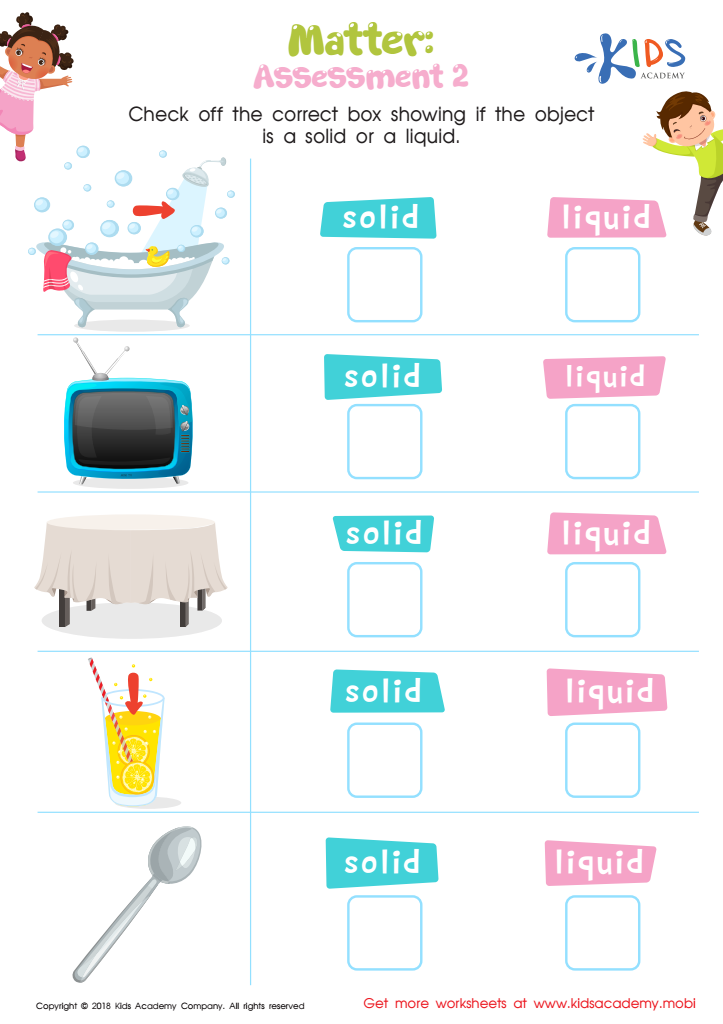Normal Science Worksheets Activities With Answers for Ages 5-7
10 filtered results
-
From - To
Explore our engaging "Normal Science Worksheets Activities With Answers for Ages 5-7," designed to ignite young minds as they discover the wonders of science! Perfect for early learners, these worksheets incorporate fun activities tailored to teach essential scientific concepts in a playful manner. Each worksheet includes clear answer keys to help parents and teachers facilitate learning and enhance comprehension. From exploring the animal kingdom to understanding weather patterns, our curriculum-adapted materials ensure students grasp foundational science topics effectively. Empower your child's curiosity and develop critical thinking skills with our thoughtfully crafted resources, making science a fun and engaging journey for young explorers!


Matter: Assessment 1 Worksheet


Force and Interactions: Assessment 1 Worksheet


Space: Assessment 1 Worksheet


Ecosystems: Assessment 1 Worksheet


Light and Sound: Assessment 2 Worksheet


Animals and Plants: Assessment 2 Worksheet


Matter: Assessment 2 Worksheet


Ecosystems: Assessment 2 Worksheet


Space: Assessment 2 Worksheet


Animals and Plants: Assessment 1 Worksheet
Parents and teachers should pay close attention to normal science activities for ages 5-7 because these foundational experiences foster critical thinking, curiosity, and a love for learning in young children. At this age, children are naturally inquisitive, and engaging them with practical science activities allows them to explore and understand the world around them.
Normal science activities, which include simple experiments, observations, and hands-on tasks, cultivate key scientific skills such as questioning, hypothesizing, and experimenting. They're designed to be age-appropriate and often incorporate playful learning methods that help children grasp complex concepts in a digestible way. When parents and teachers involve children in these activities, they are not only enhancing their scientific understanding but also encouraging skills like problem-solving, collaboration, and communication.
Moreover, science activities can easily be integrated with other subjects, reinforcing learning across areas such as math, language, and critical thinking. By providing answers and guidance through these activities, adults help to build a safe and supportive learning environment where children feel comfortable asking questions and exploring ideas. Ultimately, engaging in normal science activities sets the stage for lifelong learning and discovery, ensuring that children develop a strong base in science and a keen interest in the world.
 Assign to My Students
Assign to My Students
















